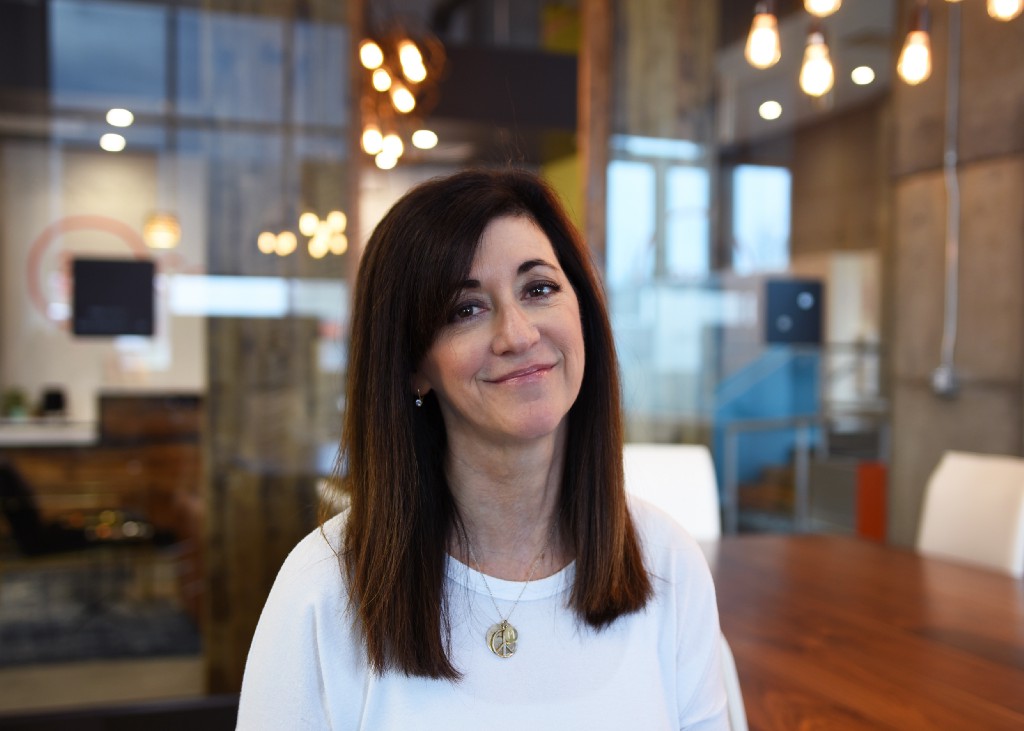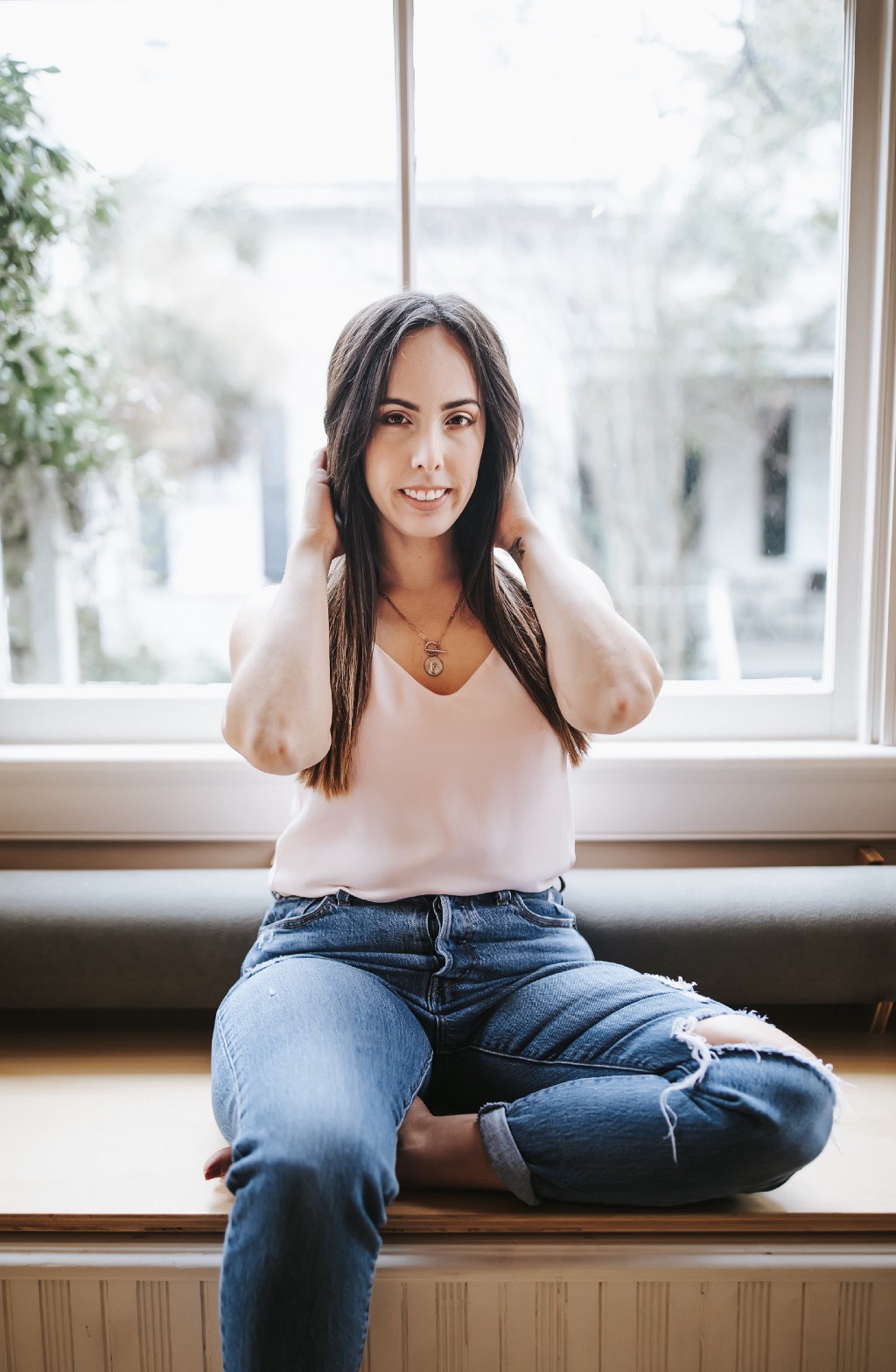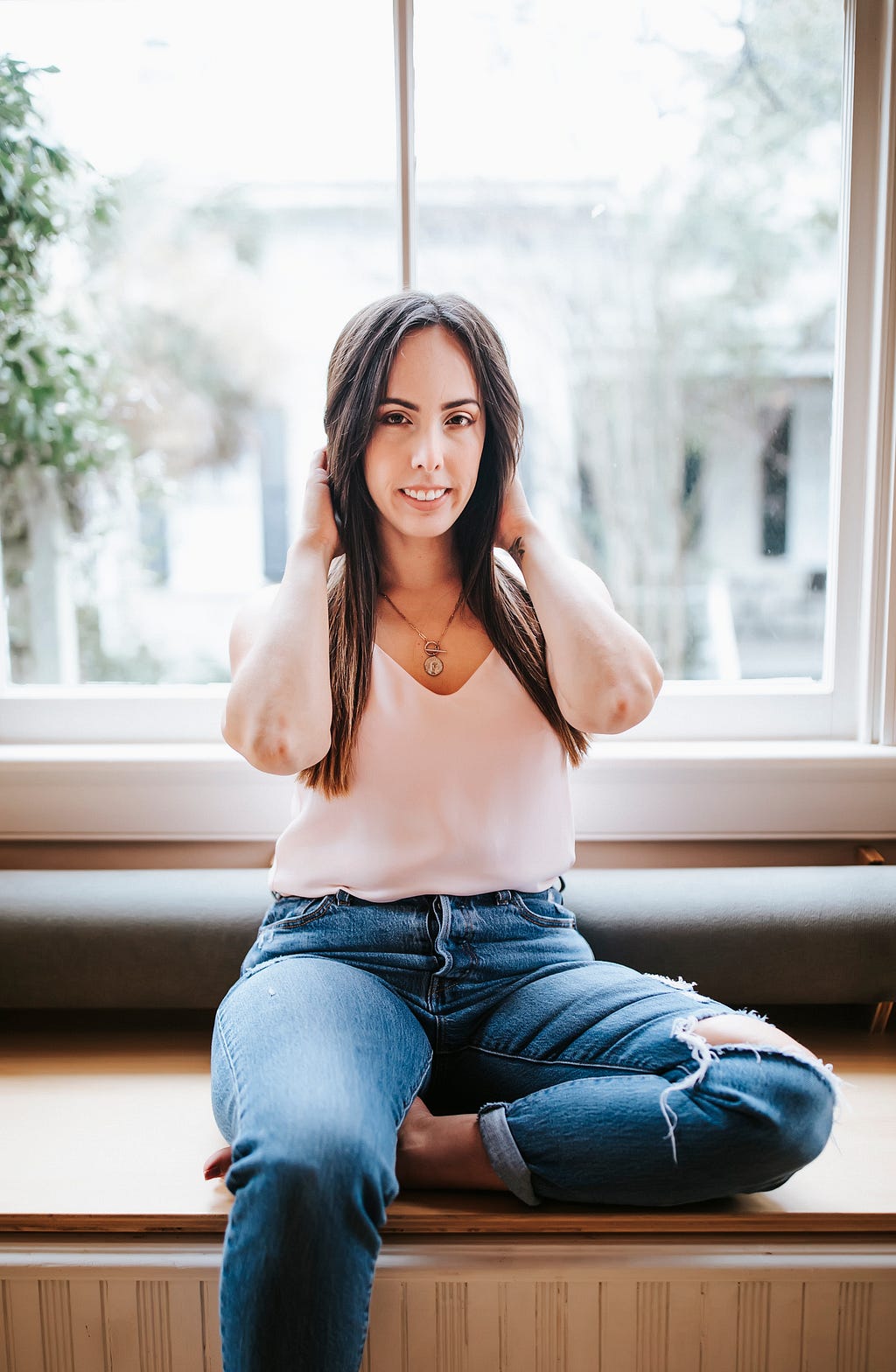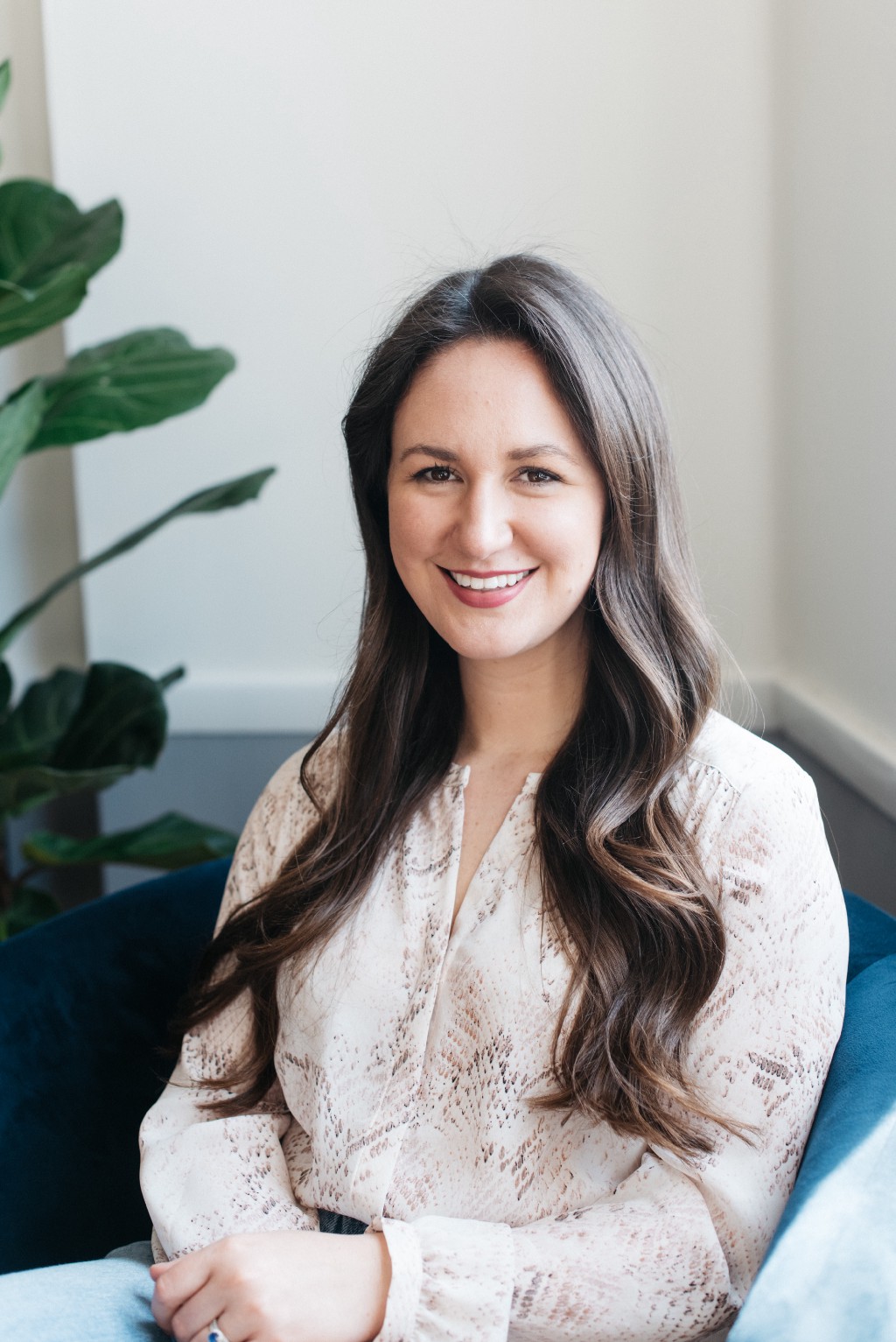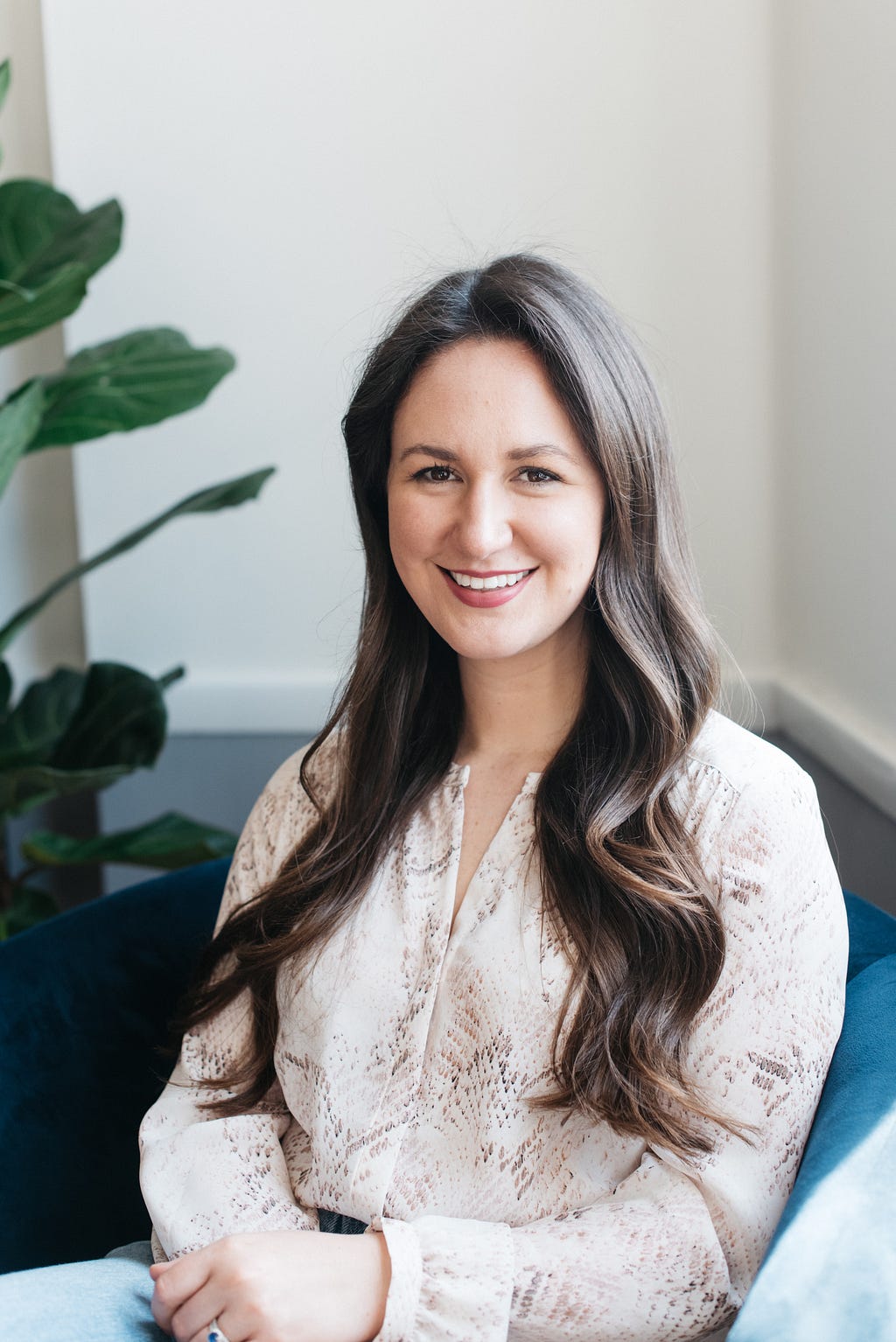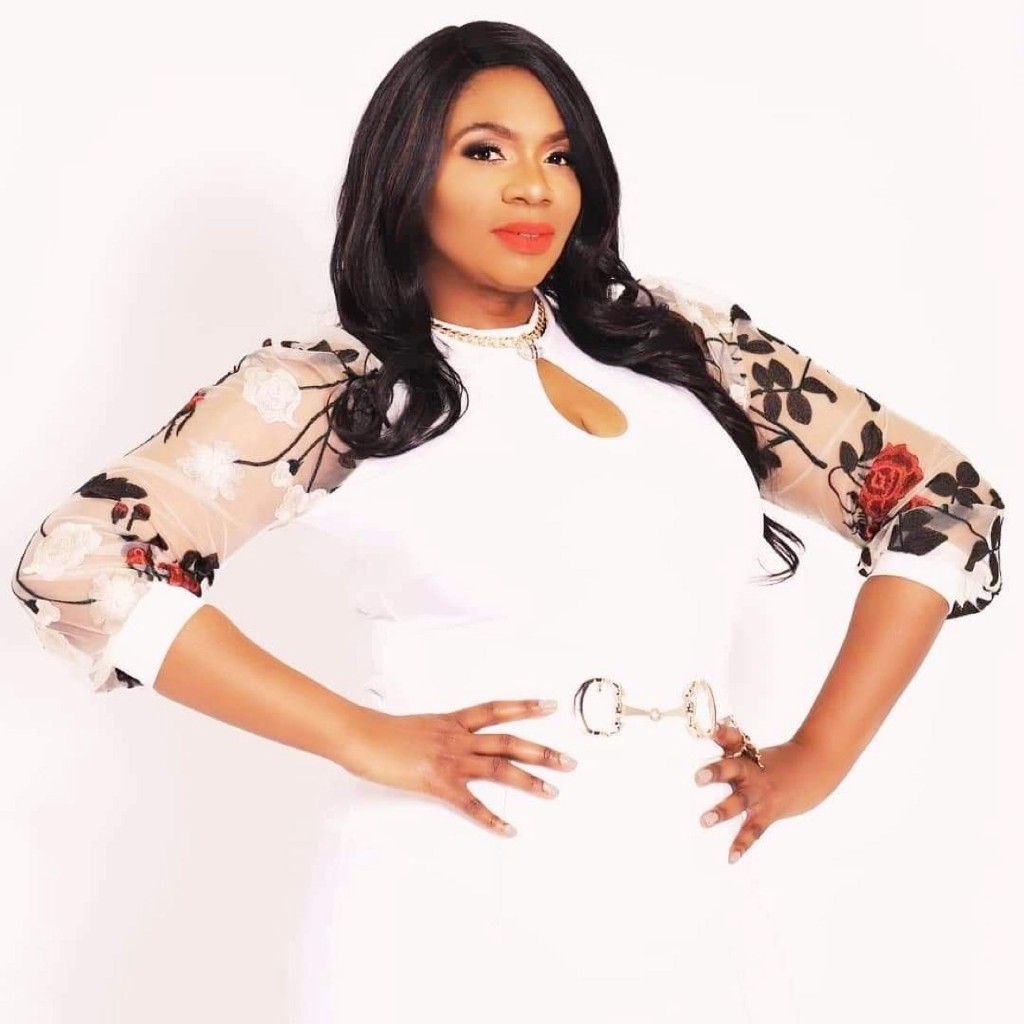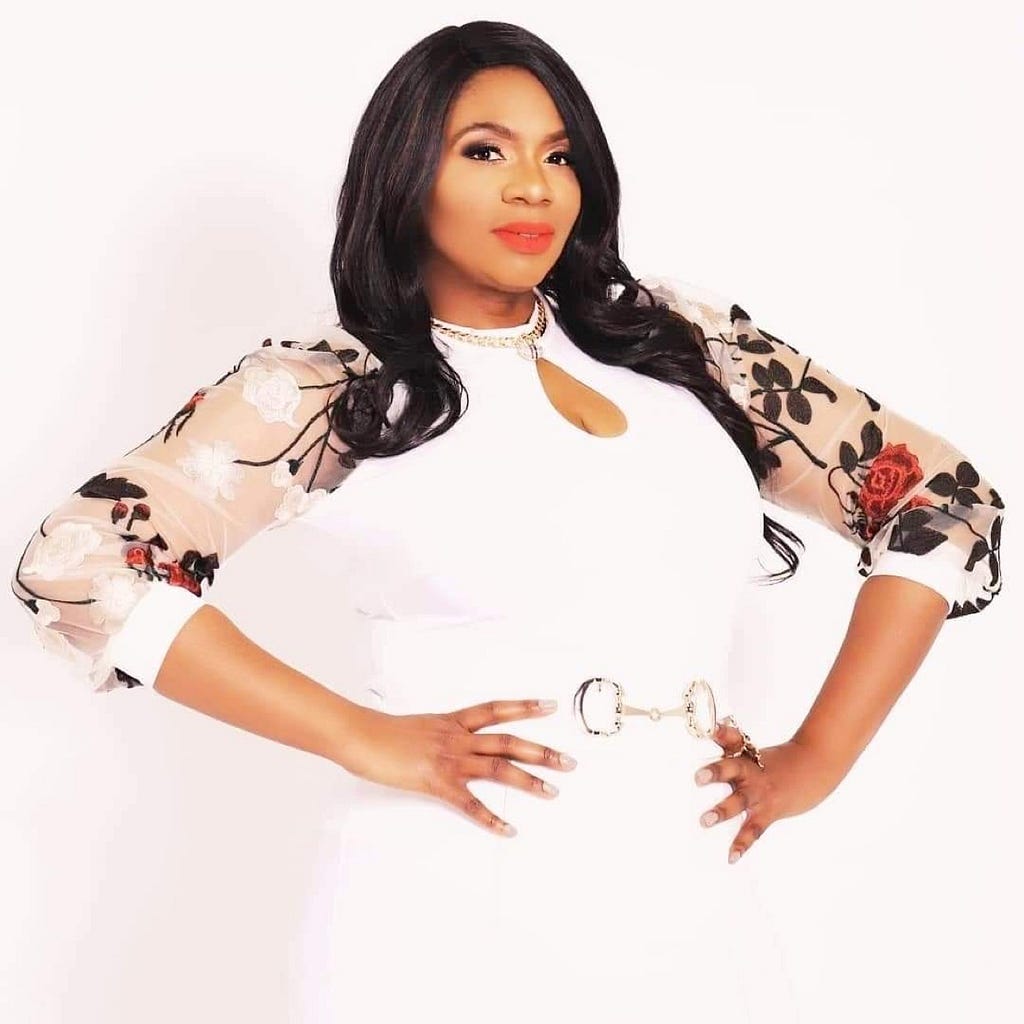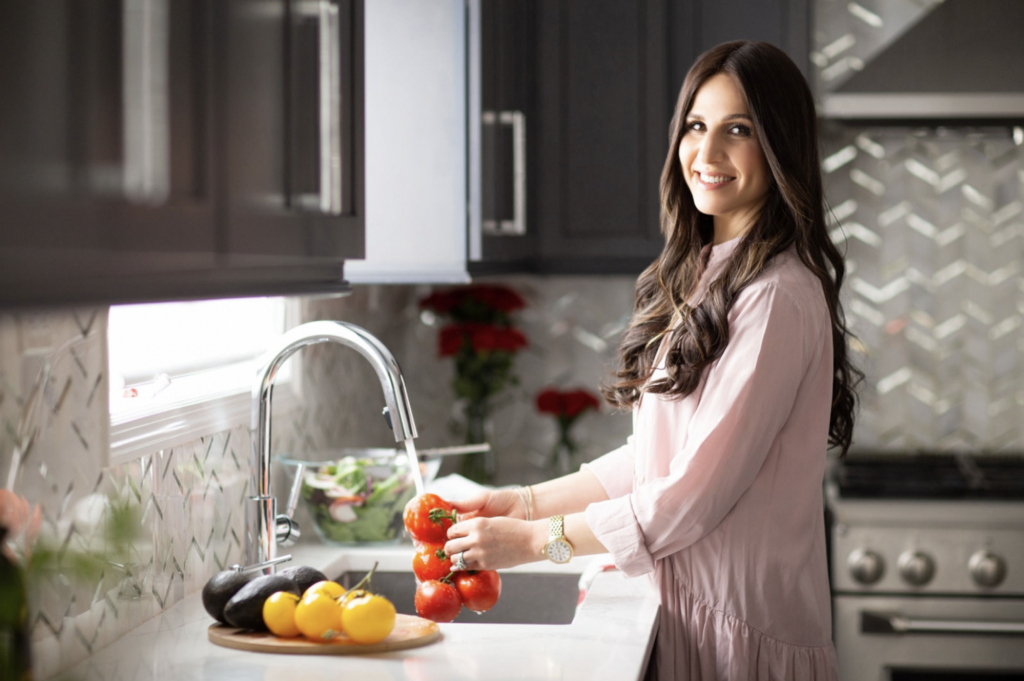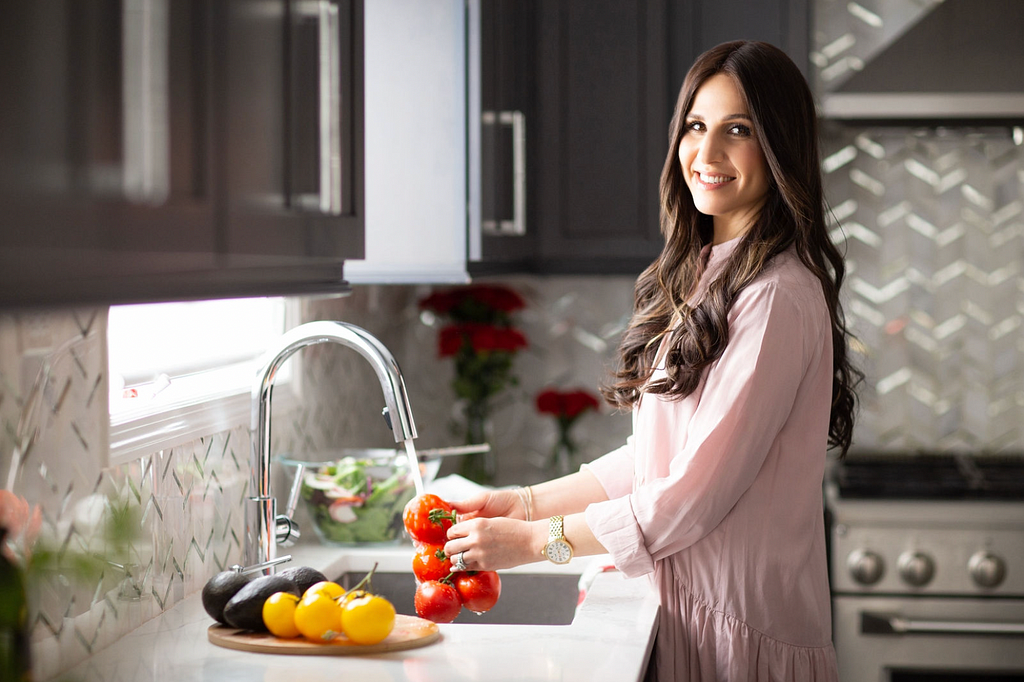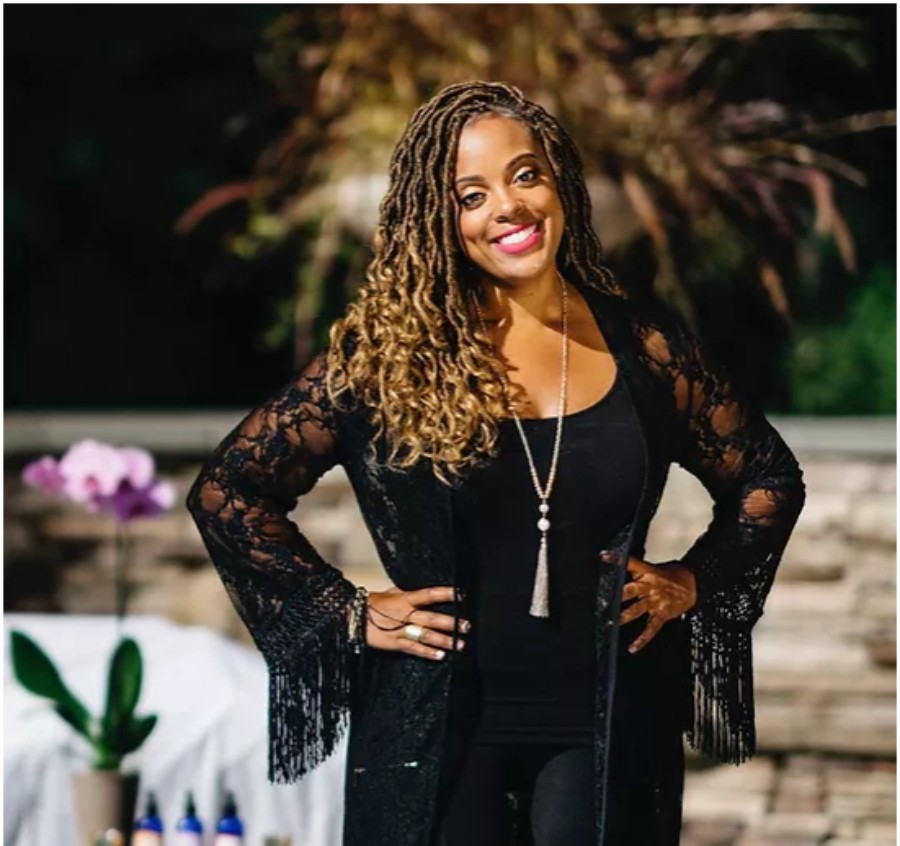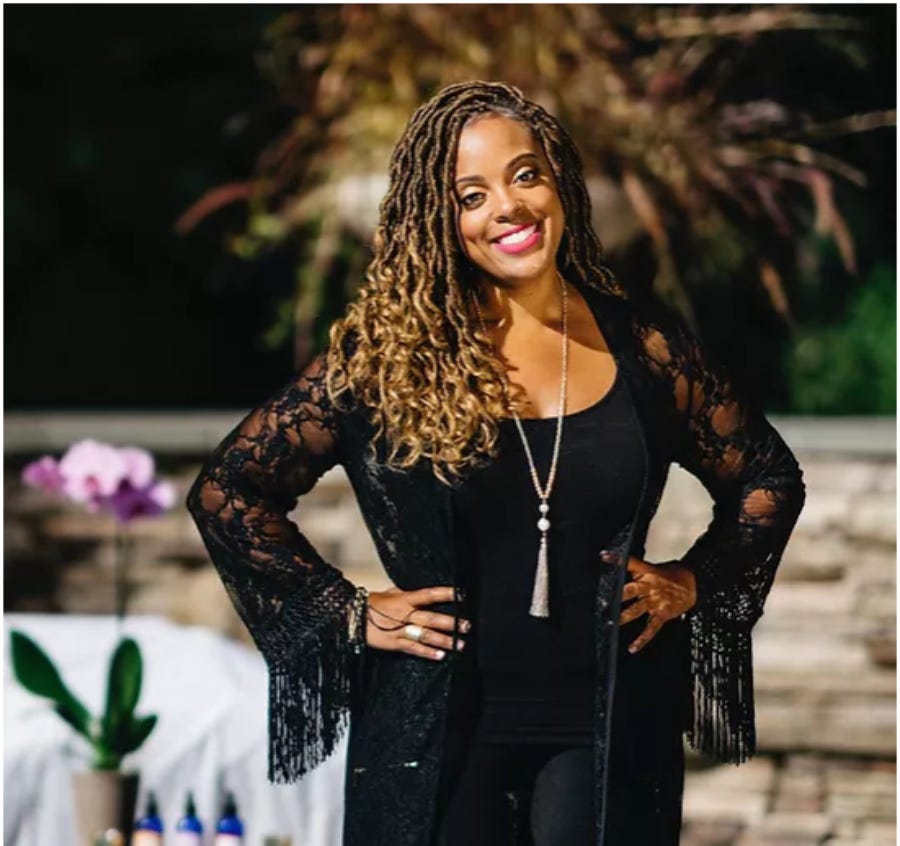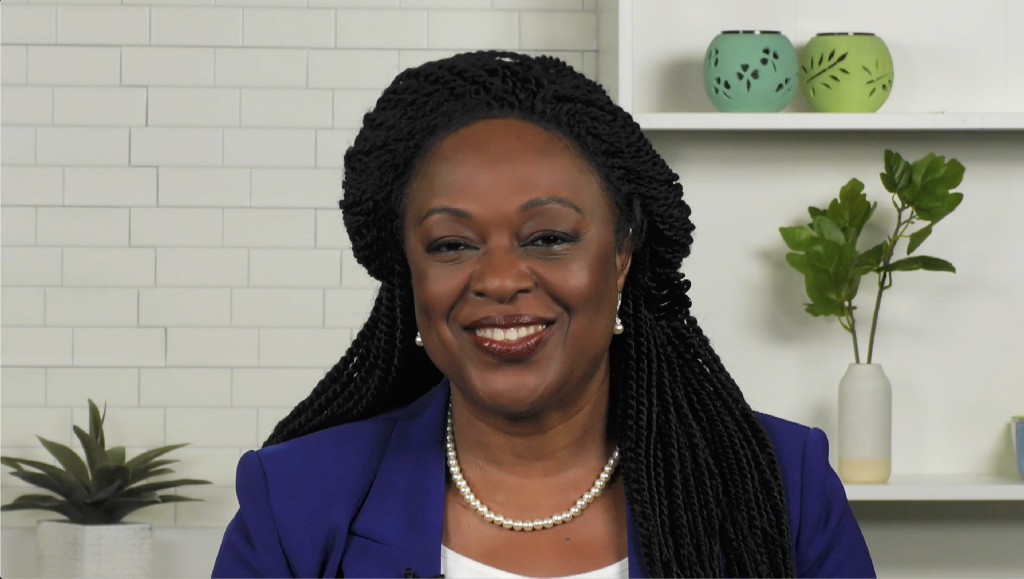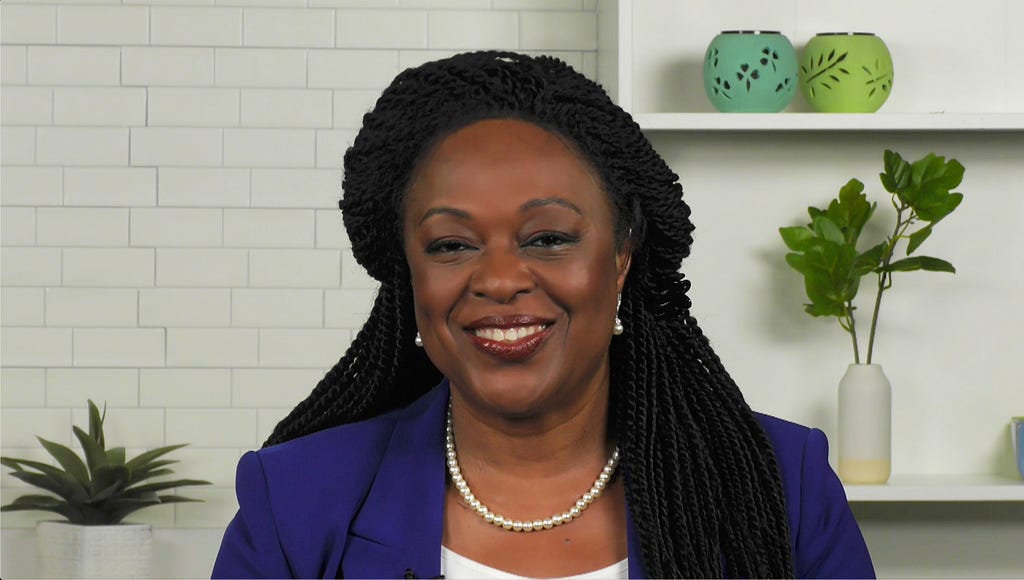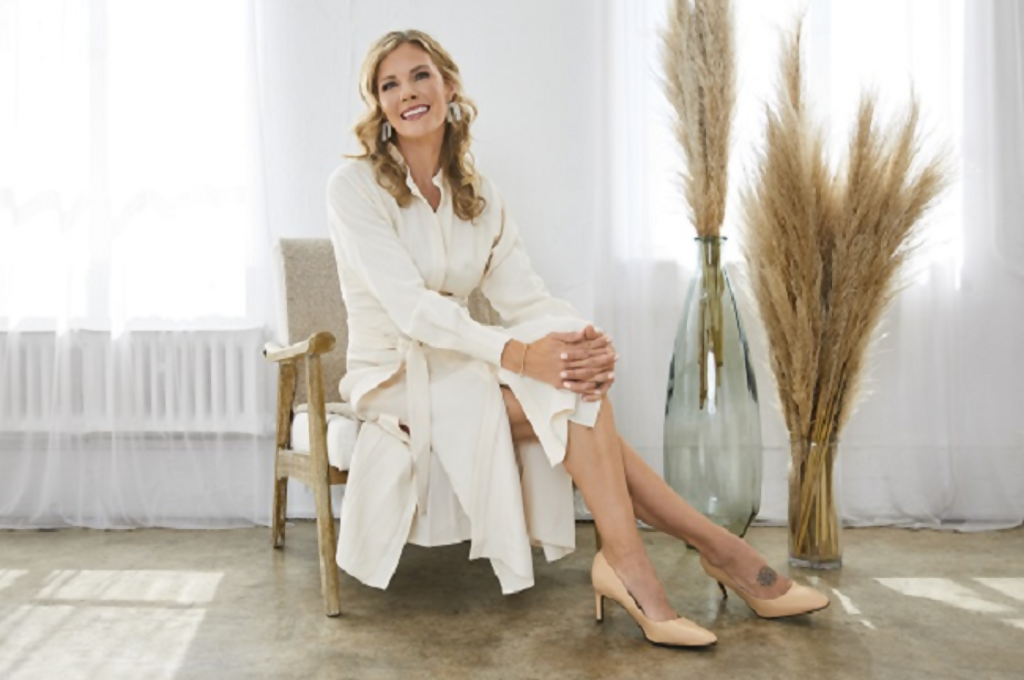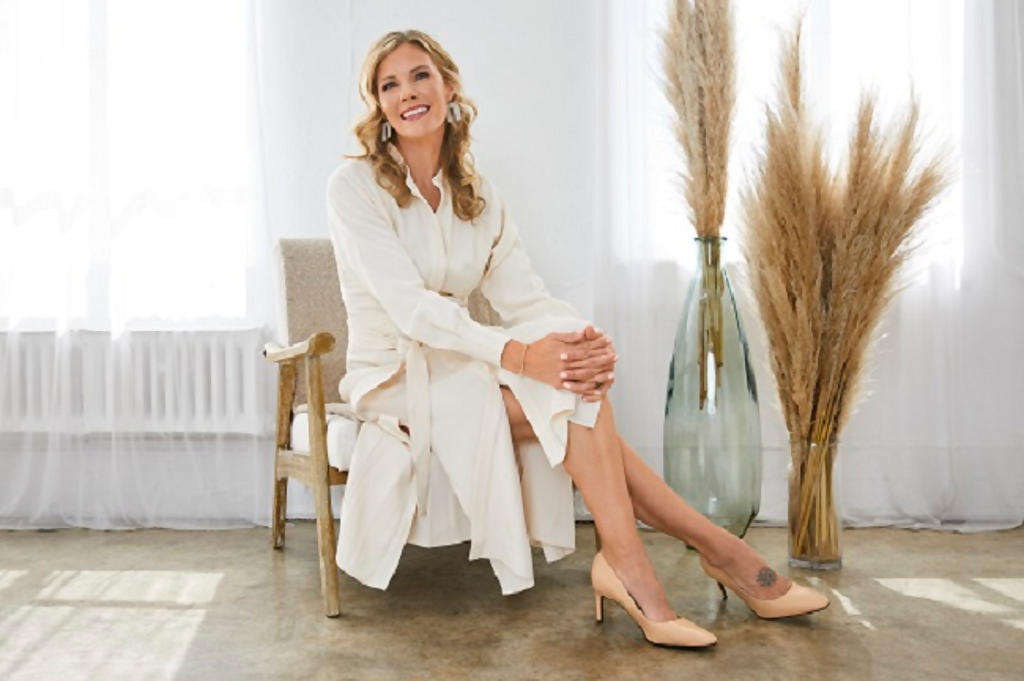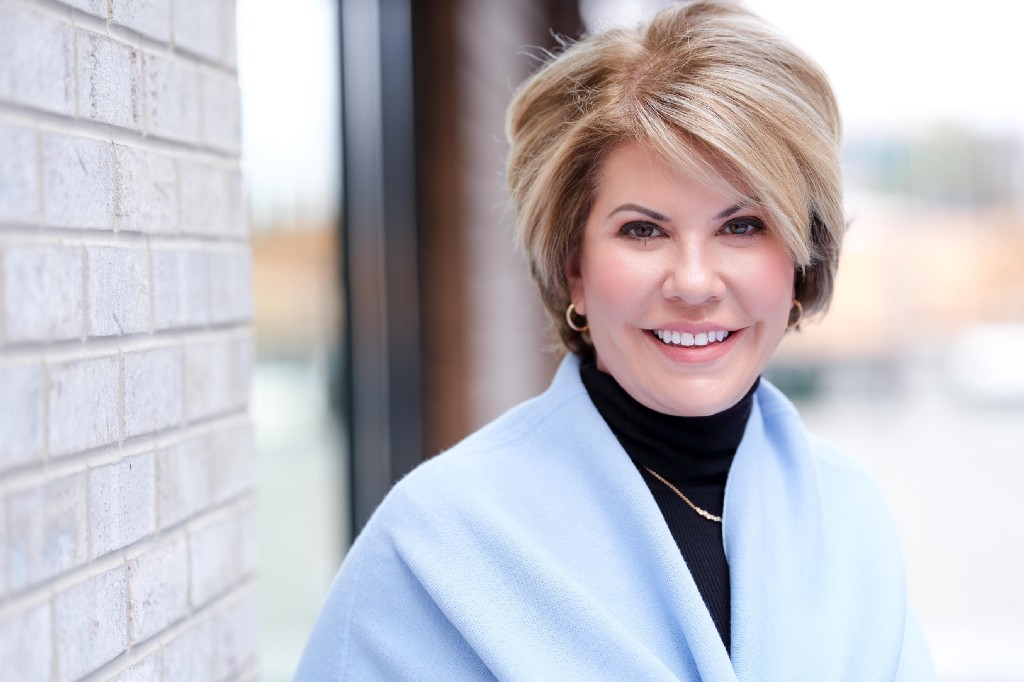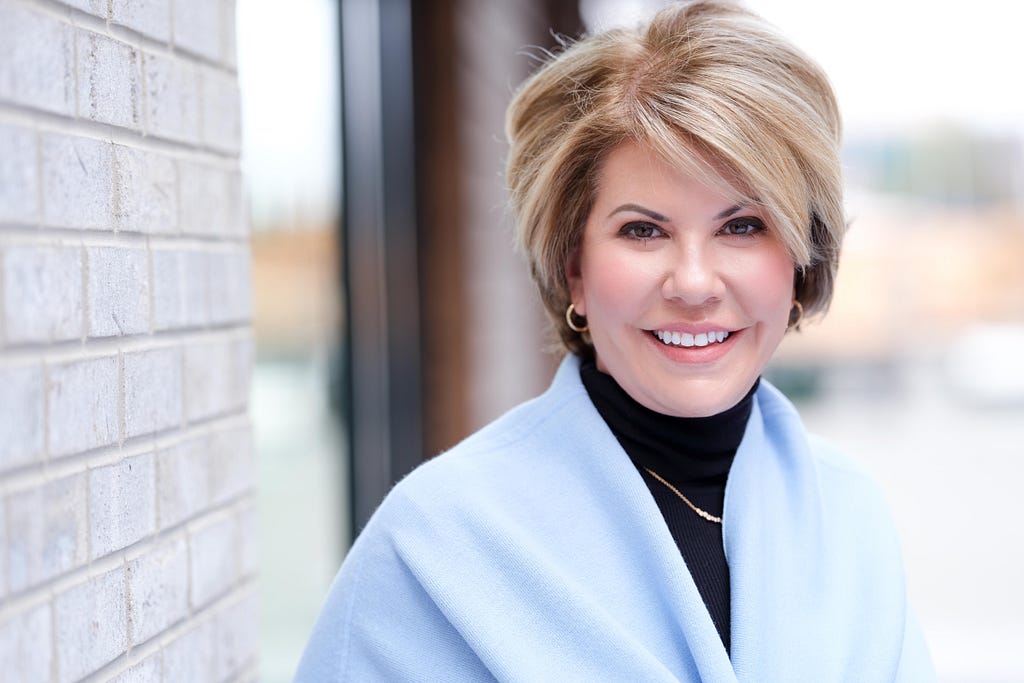Female Founders: Mara Hauser of 25N Coworking On The Five Things You Need To Thrive and Succeed as a Woman Founder
An Interview With Candice Georgiadis
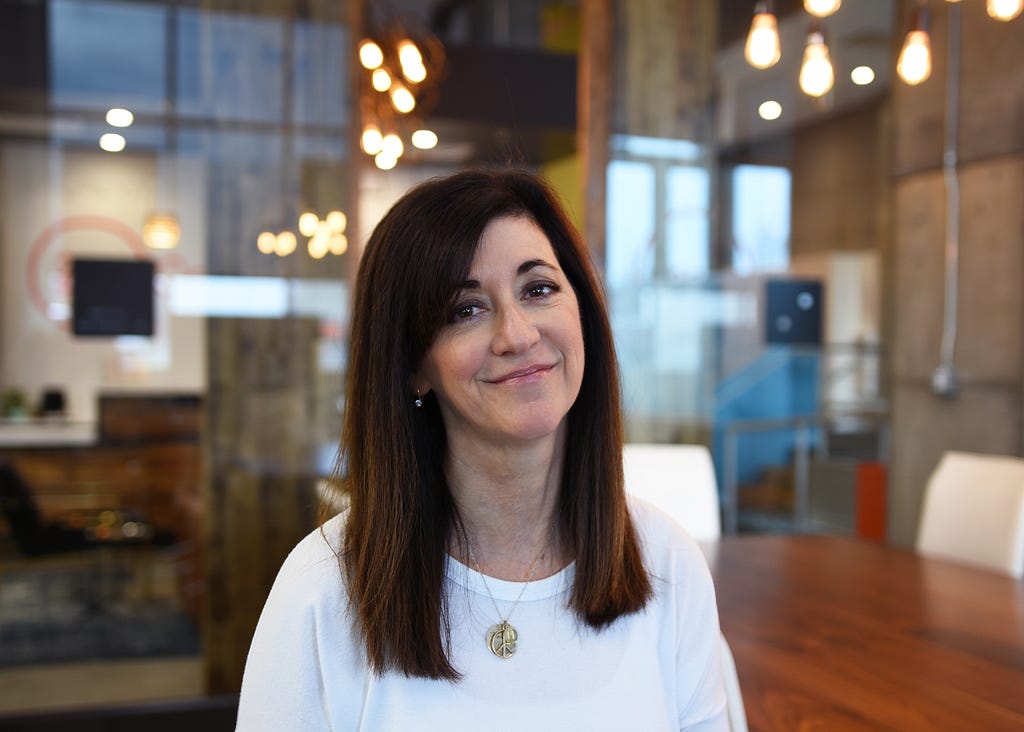
Your family members are not your employees. As leaders, we need to learn to separate being a CEO from being with your family. Check yourself at the door and don’t dish out tasks or goals and expectations. Sometimes, all your family needs is a hug, some love or space not to talk.
As a part of our series about “Why We Need More Women Founders”, I had the pleasure of interviewing Mara Hauser.
Mara Houser is the Founder & CEO of the independent brand 25N Coworking as well as Founder & Principal of Workplace Studio. A Registered Interior Designer (RID) by trade, she has been bringing innovative concepts and problem-solving designs to workplaces for more than 30 years.
Thank you so much for doing this with us! Before we dig in, our readers would like to get to know you a bit more. Can you tell us a bit about your “backstory”? What led you to this particular career path?
I first began my career as an interior designer before shifting into a consulting role. Prior to founding 25N, I spent ten years helping companies optimize performance through change management. Through this experience, I began implementing shared workspace concepts into corporate environments. Since then, enterprise companies from all across the country have come to me to make their spaces more productive.
Can you share the most interesting story that happened to you since you began leading your company?
I had been honing my knowledge and experience with flex office design for 10+ years, and I wanted to apply that knowledge to something new — to satisfy my entrepreneurial spirit as well as serve my community. Thus, 25N Coworking was born! Since then, my design firm has been able to reverse-engineer coworking concepts both for corporate clients as well as designing coworking spaces for new and established companies around the country. It was a win-win in establishing authority for Workplace Studio while also creating dynamic spaces that are literally evolving our workforce. In fact, over the last two or three years, Workplace Studio touched 33 coworking brands, planned 99 locations, launched designs for 18 start-ups, conceptualized designs for 13 “white label” projects, worked on 34 “built” coworking spaces, and refreshed 13 brands who started themselves, then brought us in to refresh or evolve their current coworking spaces. To me, that transition was one of the most exciting professional experiences I’ve had.
Can you share a story about the funniest mistake you made when you were first starting? Can you tell us what lesson you learned from that?
The funniest mistake I made while first starting in my career was trying to send a cease and desist order to another company that had the same name as my first business. The only issue was that my attorney informed me that I was actually the one that needed to change the name because, lo and behold, they had trademarked it already!
None of us are able to achieve success without some help along the way. Is there a particular person who you are grateful towards who helped get you to where you are? Can you share a story about that?
My husband, Randy. Throughout my career he has always been by my side with unwavering support, giving me grace during the highs and lows of starting a business and just being an all around amazing father.
When I was looking to buy my first company and every company since then, he did all of the financials and behind the scenes supporting any way he could. He would assist in anything from financial advisor, pro forma, starting accounting and forecasting, IT — you name it — all while having a full-time job. Randy has treated my business as though it was his own passion project, and I wouldn’t be where I am today without him and his belief in me.
Ok, thank you for that. Let’s now jump to the primary focus of our interview. According to this EY report, only about 20 percent of funded companies have women founders. This reflects great historical progress, but it also shows that more work still has to be done to empower women to create companies. In your opinion and experience what is currently holding back women from founding companies?
There’s a tremendous amount of research about how lack of representation in any given field impacts a person’s internal beliefs about their abilities (here’s just one). It’s not at all a stretch to extrapolate this research out to founders as well. If someone put you on the spot to name five wildly successful male founders, it wouldn’t be hard: Jobs, Disney, Gates, Musk, Rockefeller. What about five females? Elizabeth Holmes? Yes — you see the problem here. Micro-level personal beliefs may be based on societal expectations that influence a person’s own perceptions of their skills. I don’t think a lack of representation in founderships (only 20% as you said) is the only factor holding women back from founder roles, but it’s a very significant one.
It’s also the same old story: where to get funding. The opportunities just aren’t there; women are way less likely to get funding than men due to existing discrimination. Women have had to start businesses out of their own pocket or with family money. And how do women connect and meet VCs? It’s changing now, but it’s only been in the last five years that all-women banks or all-women VC firms have existed. Balancing family roles and traditional gender roles is also a barrier. That’s also changing, but not fast enough.
Can you help articulate a few things that can be done as individuals, as a society, or by the government, to help overcome those obstacles?
One thing that I always urge people to do, especially as a female business owner, is to continue to tell stories of female founders’ success on a micro and macro level. Buy their books, art, music, watch their documentaries (not just the juicy shipwreck ones about fraud), etc. Tell your nieces, nephews and godchildren about your own founding story. Give your time and resources to organizations that are funding and highlighting female founding stories.
These examples are more behind-the-scenes ways to support female founders everywhere while also bringing awareness to younger generations that women are just as capable as men to create their own businesses.
This might be intuitive to you as a woman founder but I think it will be helpful to spell this out. Can you share a few reasons why more women should become founders?
Because we’re amazing, and bring new perspectives to propel our economy forward. We employ true care and empathy directed at customers, clients, and employees. We’re purpose-driven and passionate. Women founders are smart, savvy, and more tenacious — because we have to be.
In 2015, First Round Capital’s 10 Year Review showed companies with female founders on the founding team perform 63% better than those with only male founders. I could speculate on a number of different reasons why female founders are a force to be reckoned with: 1) They’re less likely to go it alone. 2) They’re often less likely to “fake it”. 3) They’re more likely to develop people-first cultures.
What are the “myths” that you would like to dispel about being a founder? Can you explain what you mean?
One myth I want to dispel about being a founder is the notion that you must come up with an innovative idea from the ground up. You don’t always have to create something from nothing. There may be a need or problem that you’ve observed and are able to transform an existing entity to serve as a solution to those needs. Sometimes your idea stems from the desire to fix what is broken. For example, coworking spaces act as a solution to the need of a refreshed, accessible and flexible office space in a world where not everyone is going into a corporate office, has access to a corporate office or businesses simply looking to downsize and maximize their square footage.
Is everyone cut out to be a founder? In your opinion, which specific traits increase the likelihood that a person will be a successful founder and what type of person should perhaps seek a “regular job” as an employee? Can you explain what you mean?
Even though successful startups have been launched by such a stunning variety of interest groups, personalities, backgrounds, and demographics, I don’t believe everyone is cut out to be a founder. It’s not for the lighthearted. In order to be a founder, you need to have a crazy work ethic and the ability to accept hearing “NO” over and over. People won’t like everything you say or decide, but you have to be willing to get uncomfortable and take those steps regardless.
Ok super. Here is the main question of our interview. What are your “5 Things I Wish Someone Told Me Before I Started” and why? (Please share a story or example for each.)
After I bought my first company, my dad shared an invaluable piece of advice. He said, “The people that work for you will be most important — the conflict, the resolution, the culture.”
While taking a leadership course, I was introduced to the Canoe Theory: running a company is like leading a canoe. If one person rows really fast and one person rows really slow, you go in circles or off course. You need to be running at the same pace and aligned with each other to get to the end of the race fastest.
Making a decision as a CEO is important even though it might be the “wrong” one. Companies fumble when there is indecision. Sometimes you just have to go with your gut and make a decision to keep things moving. That’s a huge part of leadership.
On the other hand, sometimes you have to sit back and let other people move things forward. Trust your team — you built it. Sometimes you need to fill the “visionary” role and let others make the decisions without micromanaging
Your family members are not your employees. As leaders, we need to learn to separate being a CEO from being with your family. Check yourself at the door and don’t dish out tasks or goals and expectations. Sometimes, all your family needs is a hug, some love or space not to talk.
How have you used your success to make the world a better place?
I don’t want to just make the world a better place for one person, I want to create a space that makes the world a better place for everyone. It’s the reason I love coworking — it inherently inspires collaboration, drives the importance of community and provides priceless business tools and resources. Through coworking spaces, people launch businesses they might not have been otherwise able to without the resources inbuilt in a coworking space. These businesses go on to create a better world for others. I want this to develop exponentially, and I believe coworking spaces enable that.
You are a person of great influence. If you could inspire a movement that would bring the most amount of good for the greatest number of people, what would that be? You never know what your idea can trigger.
If I could inspire a movement that would bring the most amount of good for the greatest number of people, it would be a revolution in company cultures across the world. Individuals are increasingly choosing to align their careers with their personal values. Business entities need to take meaningful action to prioritize a culture of well-being and help employees find connection and balance. If companies could shift to a people-first mindset rather than a mindset of “getting the most out of an employee while they can’’, the impact on mental health, sustainability and even output would be monumental.
We are very blessed that some very prominent names in Business, VC funding, Sports, and Entertainment read this column. Is there a person in the world, or in the US with whom you would love to have a private breakfast or lunch with, and why? He or she might just see this if we tag them.
There are so many business men and women that I would love the opportunity to connect with. While I’m an avid listener of the How I Built This Podcast, I’ve been impressed with their most recent guests including Sarah Blakely of Spanx, Alli Webb of Drybar, Jen Rubio of Away and Elizabeth Cutler and Julie Rice of SOul Cycle. A common thread between all of these guests are their culture, common beliefs and dedication to creating “tribal devotion” through their corporate environments. The way each of these leaders treat employees and customers is inspiring, and behavior I strive for when thinking of entrepreneurship.
Thank you for these fantastic insights. We greatly appreciate the time you spent on this.
Female Founders: Mara Hauser of 25N Coworking On The Five Things You Need To Thrive and Succeed as… was originally published in Authority Magazine on Medium, where people are continuing the conversation by highlighting and responding to this story.

